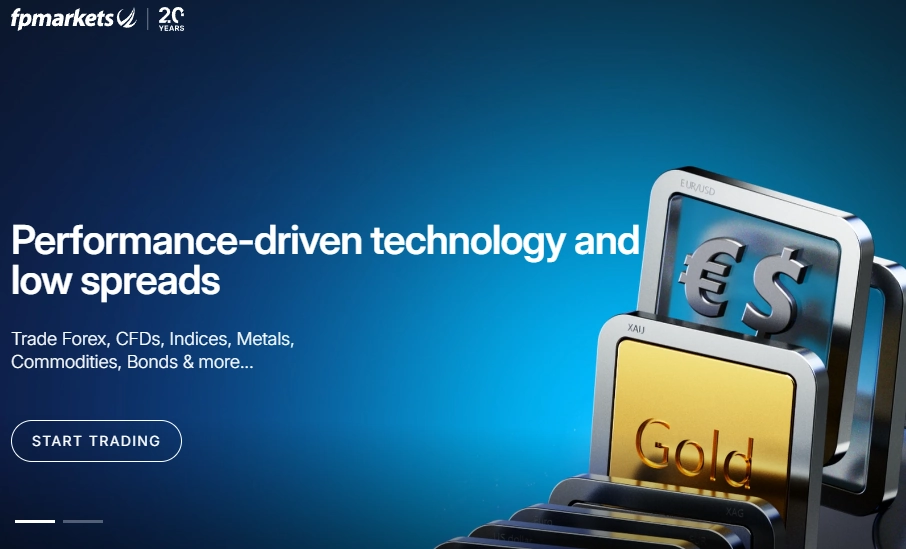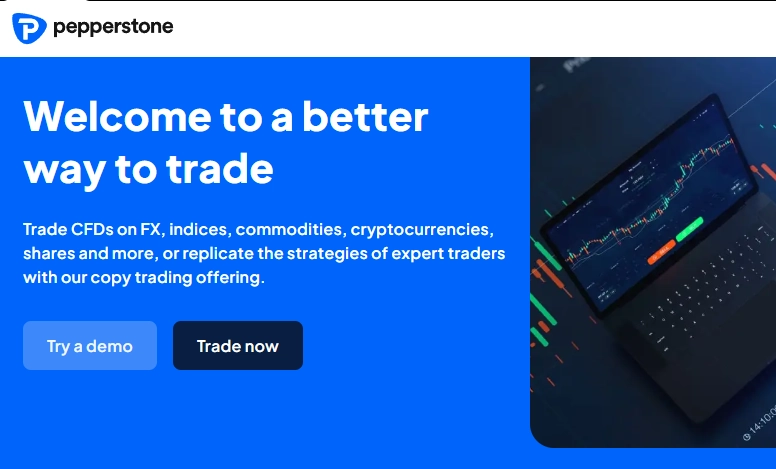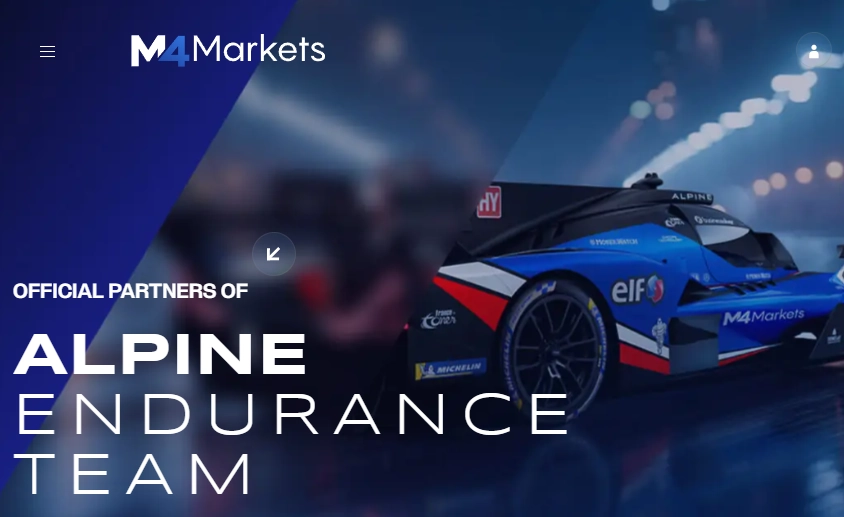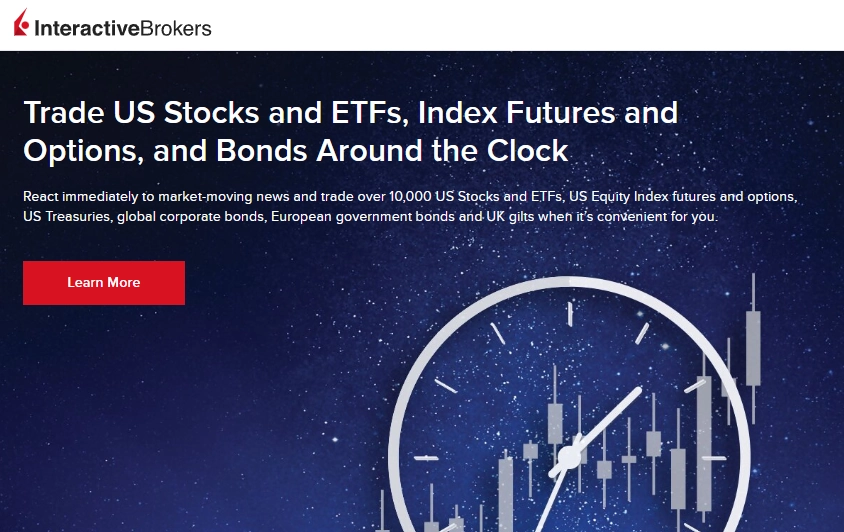Best CFD trading brokers 2025: Regulated and trusted
Best CFD Brokers of 2025: Your Complete Guide to Regulated Trading Platforms
Contract for Difference (CFD) trading has become increasingly popular among retail and professional traders seeking exposure to global markets without owning underlying assets. With hundreds of brokers competing for your attention, finding the best CFD broker can feel overwhelming.
Our comprehensive analysis focuses on regulated CFD brokers that prioritize client protection, competitive pricing, and robust trading infrastructure. After extensive research and evaluation, we've identified the top five platforms that stand out in 2025's competitive landscape.
It's important to note that none of the brokers featured in our top 5 list are scams. Each platform operates under strict regulatory oversight and maintains strong reputations within the community.
FP Markets: Professional-Grade Trading Excellence

FP Markets has established itself as a premier choice for serious CFD traders, offering institutional-level execution with retail accessibility. The Australian-regulated broker provides access to over 10,000 tradeable instruments across multiple asset classes.
Key Strengths:
- Exceptionally tight spreads starting from 0.0 pips on major pairs
- Direct Market Access (DMA) execution model
- Multiple regulatory licenses (ASIC, CySEC, FSCA, FSA Seychelles)
- Advanced trading platforms including MT4, MT5, and cTrader
- Comprehensive educational resources and market analysis
Potential Drawbacks:
- $100 minimum deposit may deter micro-account traders
- Limited cryptocurrency CFD options compared to specialized crypto brokers
- No proprietary trading platform
Minimum Deposit: $100
FP Markets excels in providing professional trading conditions with transparent pricing structures. Their DMA model ensures that your trades are executed directly in the market without dealer intervention, which can be particularly beneficial for scalping strategies.
Pepperstone: Technology-Driven Trading Platform

Pepperstone has built a reputation as a technology-focused broker, consistently investing in cutting-edge infrastructure to deliver superior execution speeds. The Melbourne-based company serves traders across multiple jurisdictions with competitive conditions.
Key Strengths:
- Ultra-fast execution with average speeds under 30 milliseconds
- Razor-sharp spreads on major currency pairs
- Strong regulatory framework (ASIC, FCA, DFSA, BaFin, CMA, SCB)
- Copy trading functionality through Myfxbook AutoTrade
- Excellent mobile trading applications
Potential Drawbacks:
- $200 minimum deposit higher than some competitors
- Limited educational content for beginner traders
- Overnight financing charges can be significant on long-term positions
Minimum Deposit: $200
Pepperstone's technological advantage becomes apparent during high-volatility periods when many brokers experience slippage. Their investment in server infrastructure and connectivity ensures consistent performance when market conditions become challenging.
M4Markets: Rising Star in CFD Trading

M4Markets broker has emerged as a compelling choice for CFD traders seeking a balance between competitive conditions and comprehensive service offerings. The broker has gained recognition for its client-centric approach and robust regulatory compliance.
Key Strengths:
- Competitive leverage up to 1:500 for professional clients
- Wide range of over 1,000 tradeable instruments
- Multiple account types catering to different trading styles
- Strong customer support with multilingual assistance
- Transparent fee structure with no hidden charges
- Advanced risk management tools
Potential Drawbacks:
- Relatively newer brand compared to established competitors
- Limited physical office locations globally
- Fewer proprietary trading tools compared to industry giants
Minimum Deposit: $250
M4Markets differentiates itself through personalized service and flexible trading conditions. The broker's commitment to regulatory compliance and client protection makes it an attractive option for traders prioritizing security alongside competitive pricing.
AvaTrade: Comprehensive Trading Ecosystem

AvaTrade brings over 15 years of industry experience to the CFD trading space, offering a well-rounded platform suitable for both beginners and experienced traders. The Dublin-headquartered broker maintains licenses across multiple jurisdictions.
Key Strengths:
- Extensive regulatory coverage across 10 major jurisdictions (CBI, ASIC, JFSA, FSA, ADGM, FSCA, BVI, CySEC, FSC, IIROC)
- Comprehensive educational academy with webinars and tutorials
- Advanced trading tools including AvaProtect risk management
- Social trading platform (DupliTrade) for copy trading
- Strong customer protection through segregated accounts
Potential Drawbacks:
- Spreads can be wider than pure ECN brokers
- Limited customization options on proprietary platform
- Inactivity fees apply after extended periods of non-trading
Minimum Deposit: $100
AvaTrade's strength lies in its educational offerings and risk management tools. The AvaProtect feature allows traders to protect positions against losses for a small fee, which can be valuable for risk-conscious traders.
Interactive Brokers: Institutional-Grade Platform

Interactive Brokers stands as the gold standard for professional traders and institutions, offering unparalleled access to global markets with competitive pricing structures. The Connecticut-based broker serves over 1.5 million client accounts worldwide.
Key Strengths:
- Access to over 5,000 CFD instruments across global markets
- Industry-leading commission rates and financing terms
- Advanced Trader Workstation (TWS) platform
- Comprehensive research and analytical tools
- Strong financial backing and regulatory compliance (SEC, FINRA, FCA, CBI)
Potential Drawbacks:
- Complex platform may overwhelm beginner traders
- Higher account minimums for certain features
- Limited customer support hours compared to retail-focused brokers
Minimum Deposit: $0-$10,000 (varies by account type)
Interactive Brokers caters primarily to sophisticated traders who value advanced functionality over simplicity. Their platform offers institutional-grade tools typically unavailable at retail brokers.
Compare Top CFD Brokers
|
CFD Broker |
Range of Underlying Assets |
Min Deposit |
Min Contract Size |
Max Leverage (Retail) |
Max Leverage (Pro) |
|
M4Markets |
1,000 |
$250 |
0.01 lots |
1:30 |
1:500 |
|
FP Markets |
10,000 |
$100 |
0.01 lots |
1:30 |
1:500 |
|
Pepperstone |
1,200 |
$200 |
0.01 lots |
1:30 |
1:400 |
|
AvaTrade |
1,250 |
$100 |
0.01 lots |
1:30 |
1:400 |
|
Interactive Brokers |
5,000 |
$0-$10,000 |
0.01 lots or 1 unit |
1:30 |
1:100 |
Choosing the Right Broker: Key Factors to Consider
Selecting the best broker for 2025 requires careful evaluation of multiple factors that align with your trading objectives and risk tolerance.
1. Regulation and Trustworthiness
Regulatory oversight serves as your primary protection against broker misconduct. Top-tier regulators including the FCA (UK), ASIC (Australia), and CySEC (Cyprus) enforce strict capital requirements and operational standards.
When evaluating a regulated CFD broker, verify their license numbers and check regulatory websites for any enforcement actions. Brokers operating under multiple jurisdictions typically offer enhanced client protection through diversified regulatory oversight.
2. Trading Costs and Fees
CFD trading costs extend beyond advertised spreads to include overnight financing, commission structures, and withdrawal fees. Professional traders should focus on all-in costs rather than headline spreads alone.
Consider these cost components:
- Spreads: Fixed vs. variable spread structures
- Commissions: Per-lot charges on commission-based accounts
- Overnight financing: Daily charges for held positions
- Withdrawal fees: Costs associated with fund transfers
3. Available Instruments
The top CFD trading platform should provide comprehensive access to your preferred markets. Consider whether you need exposure to:
- Major and minor forex pairs
- Global stock indices
- Individual equity CFDs
- Commodity futures
- Cryptocurrency derivatives
Diversified instrument availability allows for portfolio optimization and hedging strategies across multiple asset classes.
4. Trading Platforms
Platform functionality directly impacts trading efficiency and strategy execution. Evaluate these technical aspects:
- Order execution speed: Critical for scalping and news trading
- Charting capabilities: Technical analysis tools and indicators
- Mobile accessibility: Full-featured mobile applications
- API connectivity: Automated trading system integration
Many brokers offer MetaTrader 4/5 alongside proprietary platforms, providing flexibility in platform selection.
5. Customer Support
Reliable customer support becomes crucial when technical issues arise during active trading sessions. Quality indicators include:
- Response times: Live chat vs. email support availability
- Operating hours: 24/5 support during market hours
- Language support: Multilingual assistance options
- Technical expertise: Staff knowledge of platform functionality
6. Deposit and Withdrawal Process
Efficient fund management ensures seamless trading operations. Evaluate payment processing through these criteria:
- Processing timeframes: Deposit and withdrawal completion times
- Payment methods: Bank transfers, credit cards, e-wallets
- Currency options: Multi-currency account capabilities
- Fee structures: Transparent charging policies
The best CFD broker will combine competitive trading conditions with robust operational infrastructure, ensuring that your strategy can be executed effectively regardless of market conditions. Take time to test demo accounts and compare actual trading costs before committing significant capital to any platform.